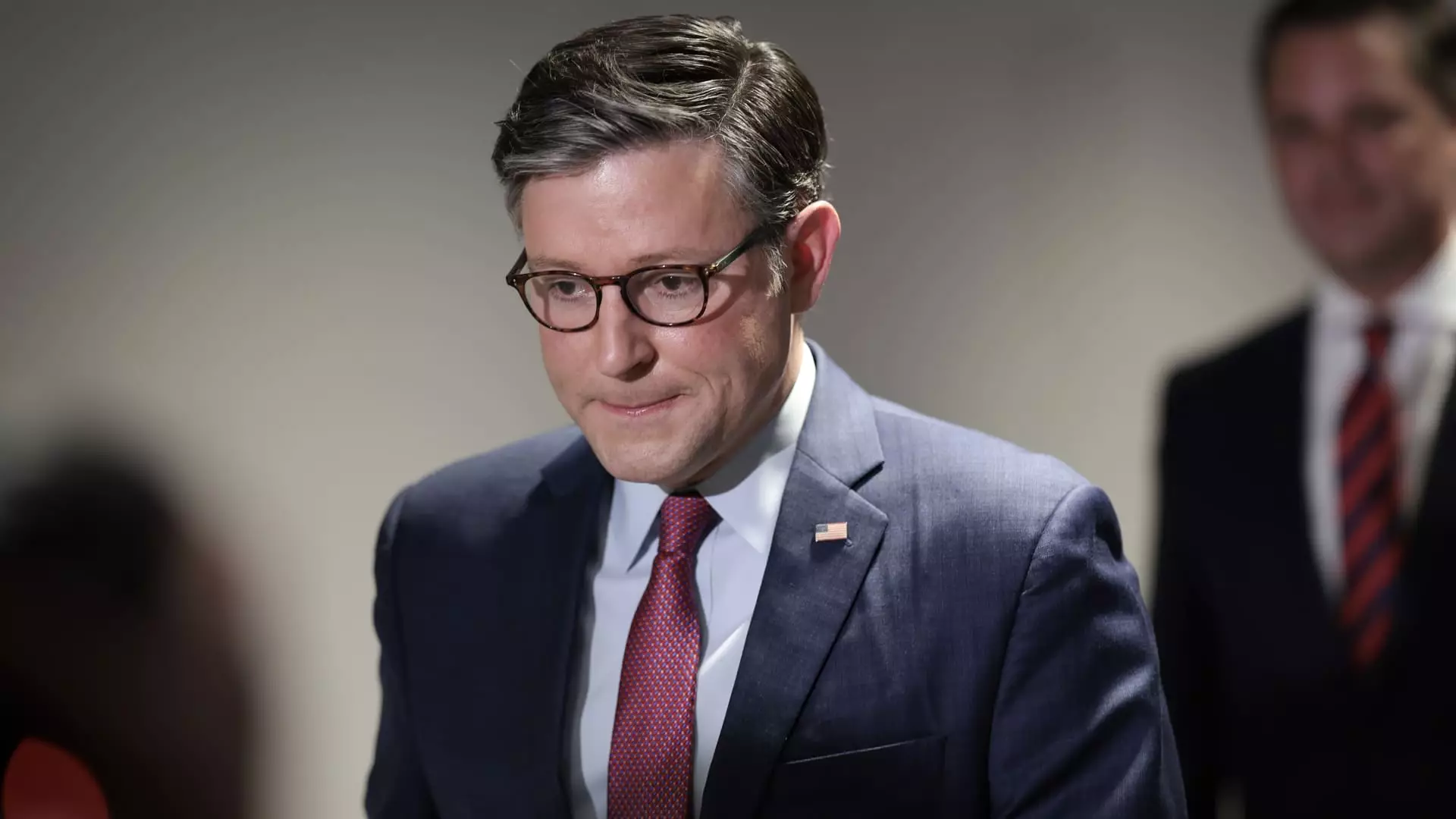In a rapidly shifting political landscape, government funding negotiations are fraught with tensions and competing interests. This week, Republican House Speaker Mike Johnson unveiled a revised proposal aimed at temporarily funding the government through December 20. His decision exemplifies the complex interplay between appeasing party factions and the imperative of avoiding a government shutdown, particularly with the upcoming November elections looming large. This article analyzes Johnson’s recent moves, the factors influencing them, and the implications they may hold for his leadership and the broader Republican Party.
Johnson’s new proposal notably excludes the SAVE Act, an election security measure championed by former President Donald Trump. This act, which would mandate proof of citizenship for voter registration, had become a rallying cry for a segment of the GOP. Johnson’s amendment reflects a strategic pivot aimed at garnering bipartisan support and escaping the clutches of a protracted funding impasse. In a landscape where party loyalties are tested, Johnson acknowledged that the previous plan’s inclusion of the SAVE Act alienated not only some Republicans but also assured Democratic opposition, essentially sounding a death knell for the bill before it even reached the Senate.
By narrowing the proposal to what he refers to as a “very narrow, bare-bones” framework, Johnson seeks to simplify the decision-making process and expedite negotiations with the Democrats. Given the razor-thin majority in the House, appeasing both factions is vital. He tactfully recognized that a government shutdown just weeks ahead of a pivotal election would likely backfire, branding such a move as “political malpractice.” This awareness underscores the precarious balance that Johnson must maintain as he steers the ship.
With a looming deadline, Johnson’s proposal includes critical funding allocations, such as $231 million for the Secret Service, amid rising concerns over security following threats directed at Trump. This specific allocation, while practical, also serves as a symbolic gesture to reinforce the message that government security and the safety of public figures are paramount. By integrating these urgent needs into the temporary funding strategy, Johnson aims to create an urgent yet limited scope, thus increasing the chances of enactment.
As Congress races against the clock, the urgency for a compromise grows unmistakably clear. Johnson mentioned in his letter, “Since we fell a bit short of the goal line, an alternative plan is now required.” This admission acknowledges the failures of previous strategies and the necessity for adaptation – a hallmark trait of effective leadership, especially in complex political environments.
The tension between partisan desires and bipartisan necessities underscores Johnson’s recent shift. With the confirmation of a Democratic majority in the Senate, a standalone, shorter-term funding measure that eludes contentious pairings with more divisive issues could be more palatable. This sentiment was echoed by Senate Majority Leader Chuck Schumer, who lauded the decision to move away from the MAGA-aligned proposed bill, suggesting a newfound openness to collaboration and problem-solving.
As such, Johnson’s pivot reflects a recognition of the changing tides within Congress, signaling an intention to foster an environment conducive to collaboration, even if it necessitates personal sacrifice in terms of party alignment. This opens essential dialogues and reflects a strategic embrace of bipartisanship as a potential solution to obstructive party politics.
While Johnson’s immediate challenges revolve around negotiating government funding, the implications of his actions extend far beyond mere legislative logistics. His willingness to compromise with Democrats could either bolster his position as a pragmatic leader or weaken his standing among hardline conservatives who view such concessions as a betrayal of core Republican values. This balancing act is particularly daunting and may foreshadow the future of GOP unity in the lead-up to contentious elections.
Historically, the fate of House speakers has hinged upon their capacity to manage intra-party conflicts while maintaining functional relationships across the aisle. Johnson’s predecessor, Kevin McCarthy, was ousted following disagreements with Democrats, giving Johnson ample reason to tread carefully. As he navigates these treacherous waters, Johnson’s decisions in the coming weeks will shape not only his legacy but the legislative dynamics within Congress moving forward.
Ultimately, Speaker Mike Johnson’s journey through this tumultuous funding landscape is emblematic of the broader challenges facing contemporary parliamentary leadership. By seeking compromises and fostering dialogues with opposing parties, he may well secure a path to stability for the government and survival for the GOP amid shifting political allegiances. The outcome of these negotiations is poised to influence not only immediate fiscal policies but also the character of political discourse as the nation heads into the next election cycle. The stakes are high, and the path forward is fraught with potential pitfalls, but decisive leadership is essential in steering the conversation toward solutions rather than stalemates.


Leave a Reply